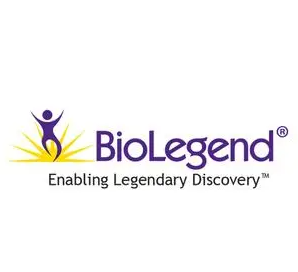Product Details
- Verified Reactivity
- Human
- Antibody Type
- Monoclonal
- Host Species
- Rat
- Immunogen
- Recombinant human CD209 protein extracellular domain
- Formulation
- Phosphate-buffered solution, pH 7.2, containing 0.09% sodium azide
- Preparation
- The antibody was purified by affinity chromatography.
- Concentration
- 0.5 mg/mL
- Storage & Handling
- The antibody solution should be stored undiluted between 2°C and 8°C.
- Application
-
FC - Quality tested
- Recommended Usage
Each lot of this antibody is quality control tested by immunofluorescent staining with flow cytometric analysis. For flow cytometric staining, the suggested use of this reagent is ≤ 0.5 ?g per million cells in 100 ?L volume. It is recommended that the reagent be titrated for optimal performance for each application.
- Application Notes
Clone A20120F can completely block the binding of clone 14E3G7 to target cells. It does not affect the binding of clone A20120B, clone 9E9A8 and clone DCS-8C1.
- RRID
- AB_2924572 (BioLegend Cat. No. 380502)
Antigen Details
- Structure
- DC-SIGN is a 44 kD type II transmembrane glycoprotein and a member of the C-type lectin family. DC-SIGNR (DC-SIGN-related molecule) is a type II integral membrane protein that is 77% identical to DC-SIGN.
- Distribution
-
Dendritic cells, endothelial cells, macrophages
- Function
- CD299 mediates interactions between dendritic cells and resting T cells and has a high affinity for HIV-1 gp120. CD209 plays a critical role in capturing and internalizing pathogens. LSP1 (leukocyte-specific protein 1) interacts with the cytoplasmic domain of CD209 and mediates the transport of HIV to the proteasome.
- Ligand/Receptor
- CD209 binds to ICAM-3 (CD50), ICAM-2 (CD102), and Butyrophilin (BTNA2A1). CD299 is a receptor for ICAM-3 (CD50).
- Cell Type
- Dendritic cells, Endothelial cells, Macrophages
- Biology Area
- Cell Biology, Immunology, Innate Immunity, Neuroinflammation, Neuroscience
- Molecular Family
- CD Molecules
- Antigen References
-
- Fauci AS. 1996. Nature. 384:529-34.
- Yokoyama-Kobayashi M, et al. 1999. Gene. 228:161-7.
- Soilleux EJ, et al. 2000. J Immunol. 165:2937-42.
- Pohlmann S, et al. 2001. Proc. Natl. Acad. Sci. USA 98:2670-5.
- Bashirova AA, et al. 2001. J Exp Med. 193:671-8.
- Lai WK, et al. 2006. Am J Pathol. 169:20-8.
- Gene ID
- 30835 View all products for this Gene ID 10332 View all products for this Gene ID
- UniProt
- View information about CD209 CD299 on UniProt.org








